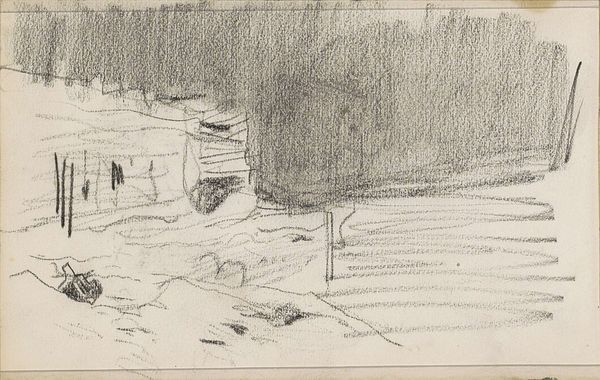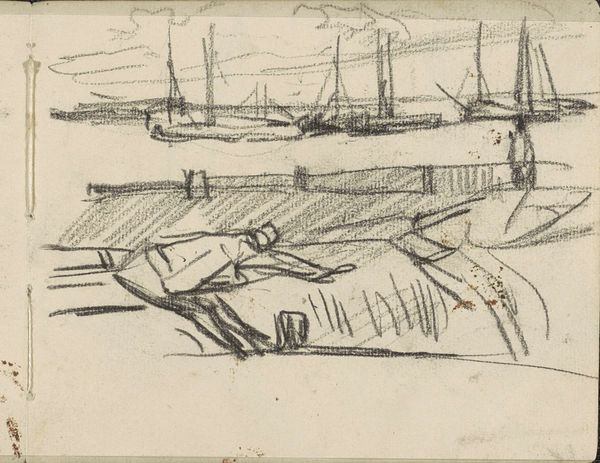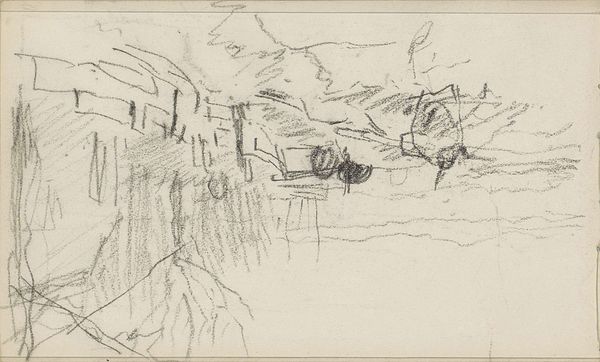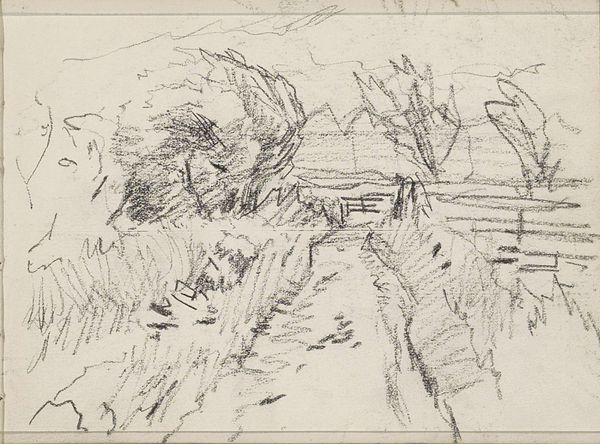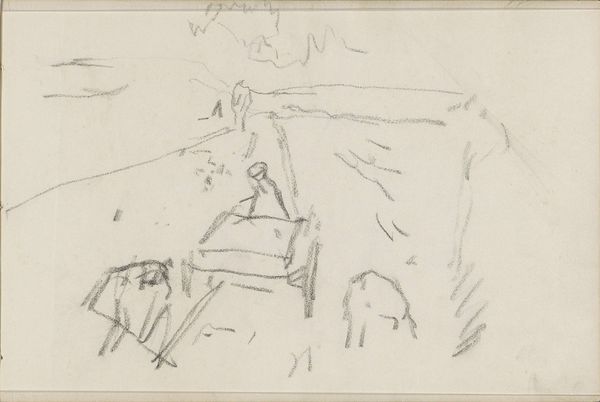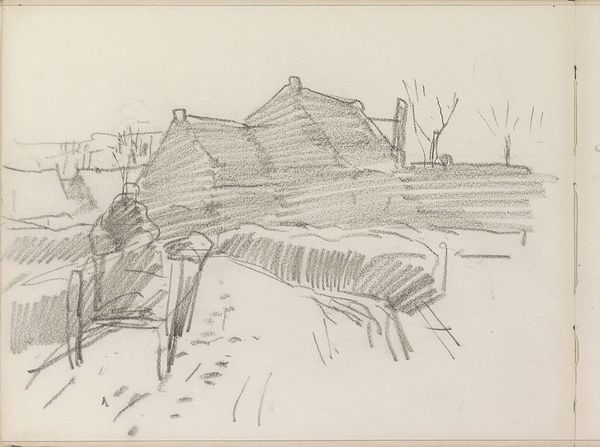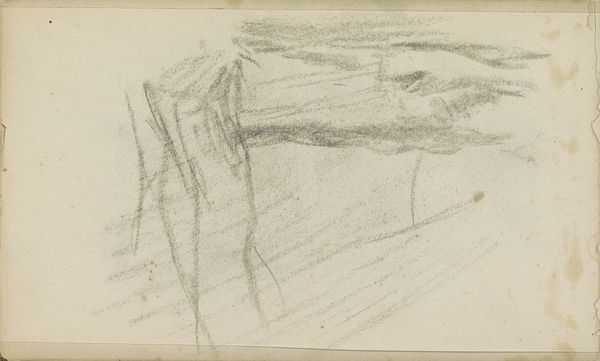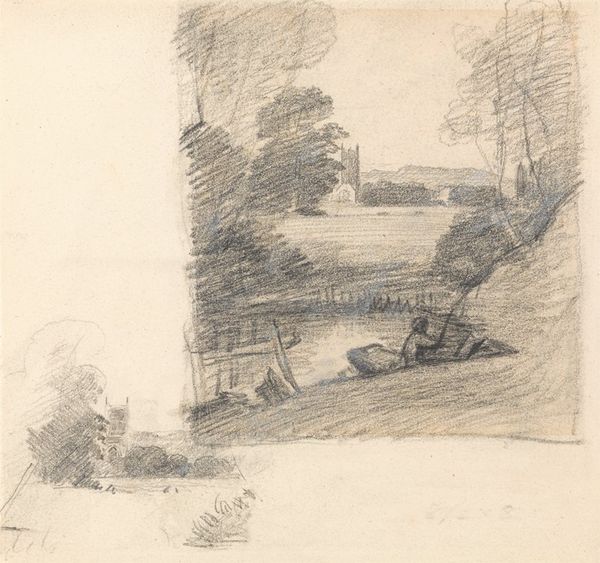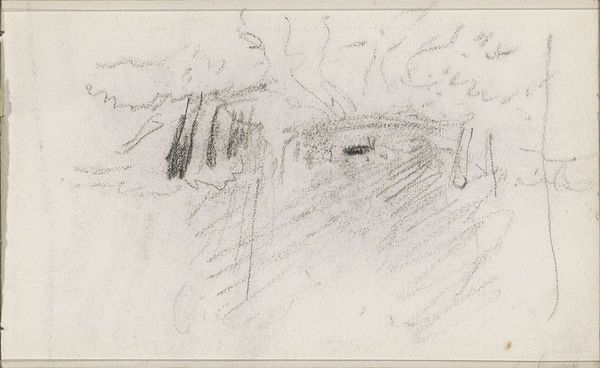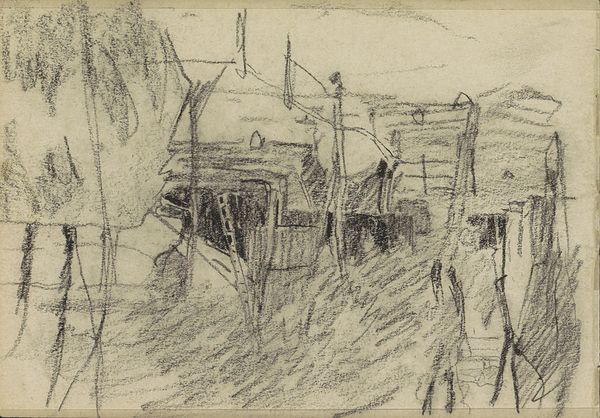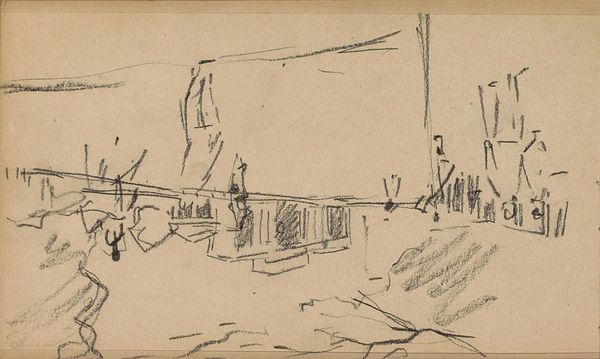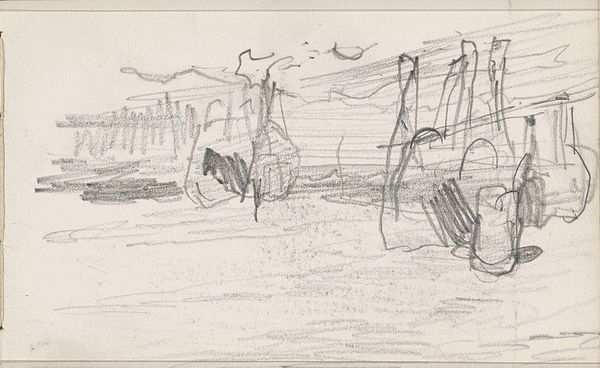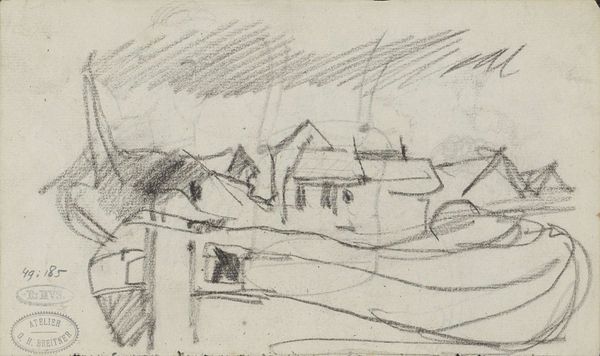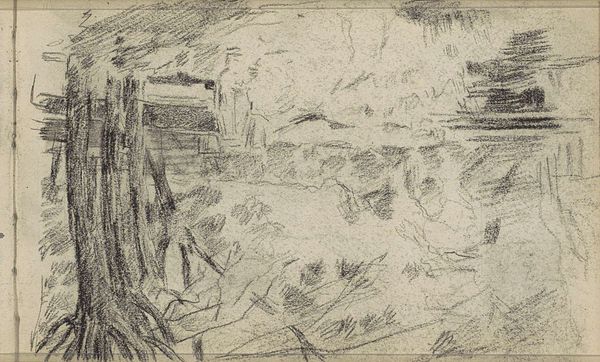
Copyright: Rijks Museum: Open Domain
Curator: Welcome. Before us, we have George Hendrik Breitner's pencil drawing titled "Figuren, mogelijk op het platteland," created sometime between 1886 and 1923. Editor: It's...sketchy, literally! It feels like I'm seeing the bones of a place, a fleeting memory almost fading away. The lines are so spare, so raw, yet there's a surprising amount of depth hinted at. Curator: Indeed. Breitner, known for his involvement in the Amsterdam Impressionism movement, frequently captured everyday life. He worked extensively in series. Here, you're witnessing that quick, on-the-spot capturing of rural life that fed into the more resolved paintings and images we know of him. These more gritty impressions of real city or rural existence countered some of the more fanciful imagery created for public consumption in the 19th century. Editor: Gritty is a good word. There's something unpolished and authentic about it. It's not trying to pretty anything up; the reality of rural work, the cold or mud perhaps – feels very present. And the looseness invites you to fill in the details yourself, making it oddly engaging. Curator: Consider the period. Photography was gaining traction, influencing how artists like Breitner approached representation. He wasn't aiming for photorealistic detail but rather for an essence, an impression, like capturing a snapshot of a moment in time with these brisk marks of pencil. Editor: So true! It is almost photographic in its composition, as if capturing some workers off on the road with a hidden camera. And that imprecision lends a timeless quality to it, paradoxically. It feels both like a specific time and place, and utterly universal. I get the sense Breitner loved his surroundings and these figures simply as part of them. Curator: And Breitner himself as part of them. Breitner also struggled with depression for his adult life. You get the sense of not simply observation, but connection, too. In the rapidly industrializing Netherlands, there was some nostalgia for rural past that this hints at. Editor: Hmm, interesting...a melancholic love letter to a disappearing world? I definitely feel the pull of that emotion now that you mention it. Like we are catching this disappearing world, and only barely holding on! Curator: Well, that’s the power of a sketch, isn't it? Capturing a moment, an impression, before it vanishes. Thank you for joining me as we consider a few brief gestures that manage to reflect an era. Editor: Thanks! My pencil is itching, time to capture something fleeting myself.
Comments
No comments
Be the first to comment and join the conversation on the ultimate creative platform.
